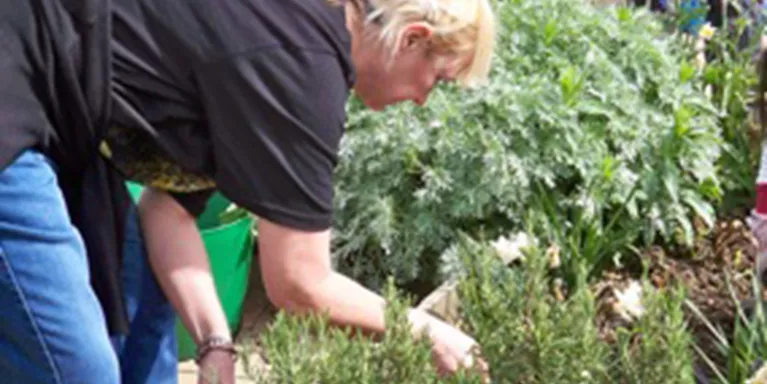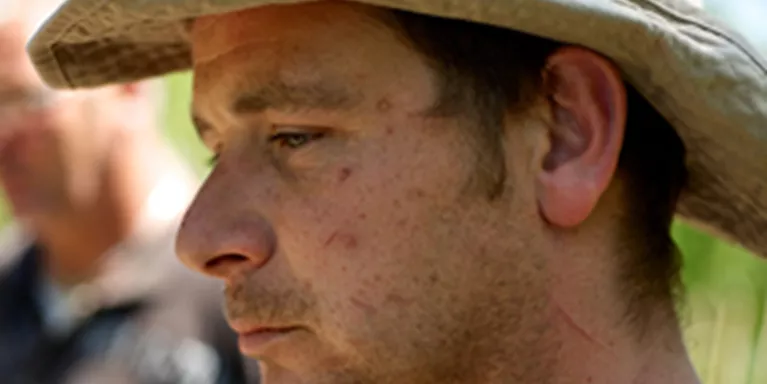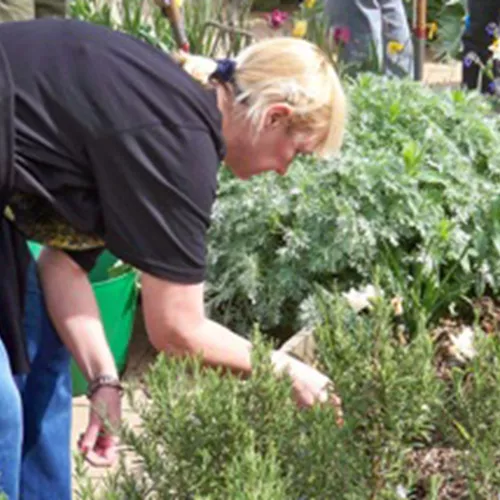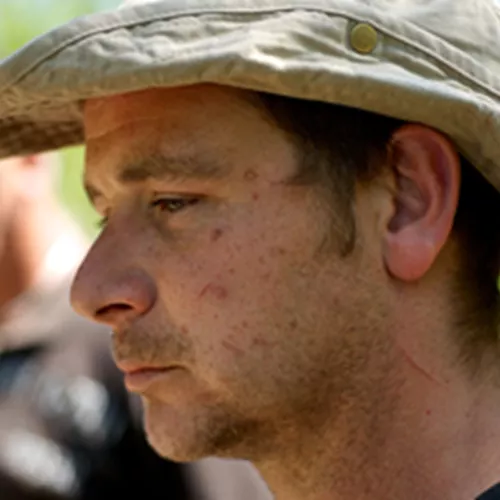Ecotherapy
Explains what ecotherapy is, how to get involved in a programme, and what to do if no ecotherapy is available in your area.
View this information as a PDF (new window)
What is ecotherapy?
Ecotherapy is a formal type of therapeutic treatment which involves doing outdoor activities in nature. There isn't one single definition of ecotherapy, but it's often used to describe a regular, structured activity that:
- is led by trained professionals (sometimes therapists), who are there to support you
- focuses on doing an activity, rather than on your health
- takes place in a green environment
- is related to exploring and appreciating the natural world
- involves spending time with other people, although you can always choose to interact at your own pace.
You might do an ecotherapy programme on its own, or alongside other treatments such as talking therapies, arts and creative therapies or medication.
As someone who's socially anxious, I've found it much easier to chat to people and make friends when you have a practical task to do together. You have easy common ground and there's never pressure to chat if you don't feel like it. I've got to know some of the best people I've ever known whilst de-lousing chickens and cleaning donkey hooves. This kind of work is extremely bonding.
Ecotherapy: an introduction
This short video introduces the main ideas behind ecotherapy, and explains how using nature and the outdoors can improve mental wellbeing:
Being at a supported gardening project has transformed my life and saved the life of my partner who had attempted suicide four times before she regained hope.

Ecotherapy saved my life
I met other people with similar problems and it soon became a very supportive environment.
What happens in ecotherapy?
Ecotherapy can take place in both rural and urban settings, including parks, gardens, farms and woodlands. It involves varying amounts of physical activity, depending on the type of programme. It can include activities that focus on:
- working in nature, such as a conservation project, gardening or farming
- experiencing nature, such as enjoying the views on a walk or cycling through woodland
- spending time with others in nature, such as preparing and sharing meals together.
Some ecotherapy sessions follow a set structure. Others can be more informal, or vary depending on the time of year and what work needs doing. People in the group may or may not have experience of mental health problems, but the main focus is usually working together on the shared activity.

Managing my mental health with ecotherapy
I certainly didn't think that nature could help me in my situation, but I tried it.
What types of ecotherapy programme are there?
Ecotherapy programmes can involve a wide range of activities. For example:
- Adventure therapy involves doing adventurous physical activities in a group, such as rafting, rock climbing or caving.
- Animal-assisted interventions involve being in spaces such as farms where you come into contact with animals and spend relaxed time feeding or petting them.
- Animal-assisted therapy involves building a therapeutic relationship with animals, such as horses or dogs.
- Care farming, or therapeutic farming activities, involves looking after farm animals, growing crops or helping to manage woodland. Find out more from Social Farms & Gardens.
- Environmental conservation involves protecting and caring for natural spaces. The Conservation Volunteers run local one-off and ongoing projects. You can also join Green Gyms, which combine physical exercise with conservation tasks.
- Green exercise therapy involves doing exercise in green spaces. For example, walking, running or cycling. Find out more about walking from the Ramblers or Mind over Mountains.
- Nature arts and crafts, or doing art in or with nature. Can include creating art in green space, using the environment as inspiration or using natural materials such as wood, grass or clay.
- Social and therapeutic horticulture involves gardening, growing food, or spending time around flowers or plants. It can take place in allotments or community gardens, or inside buildings like village halls or libraries. Find out more from Carry on Gardening, Groundwork and Thrive.
- Wilderness therapy involves spending time in the wild and doing activities together in a group. For example, making shelters and hiking. Find out more from The Wilderness Foundation.
I have depression, anxiety and BPD. Doing ecotherapy has allowed me somewhere that's my safe place, a place of my own. Where I can be quiet and peaceful. The act of growing and caring for something else helps me stop thinking about what is going on in my head.
How can I get involved in an ecotherapy programme?
If you'd like to find an ecotherapy programme in your local area, you could:
- Contact your local Mind to ask if they run any ecotherapy programmes you could join. Find your nearest local Mind on our online search page.
- Explore what different organisations offer. See our useful contacts for details.
- Ask your GP. They might be able to refer you to a local programme. This is sometimes called 'social prescribing' or 'green prescribing'. See our page on talking to your GP about your mental health for tips.
Some ecotherapy programmes need you to have a referral. This might need to come from your GP, or they may accept a referral from another professional you see regularly. The cost of ecotherapy programmes varies, although some are free.
What if there isn't a programme near me?
If you can't find any ecotherapy programmes in your local area, you could:
- Ask your local Mind if they are able to get funding to start one.
- Look for nature-based groups or classes, such as walking groups or community gardens. Your local library or community noticeboard might have details.
- Look for therapeutic communities in your area and see if they include ecotherapy. For more information, see the list of therapeutic community providers on the Consortium of Therapeutic Communities website.
I do ecotherapy to get sunlight onto my skin and into my mind. It shines light through the dark fog of depression.
This information was published in November 2021. We will revise it in 2024.
References and bibliography available on request.
If you want to reproduce this content, see our permissions and licensing page.














